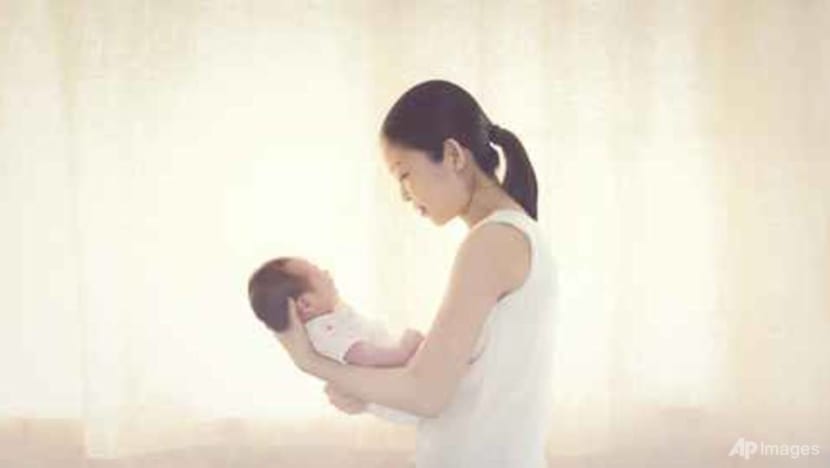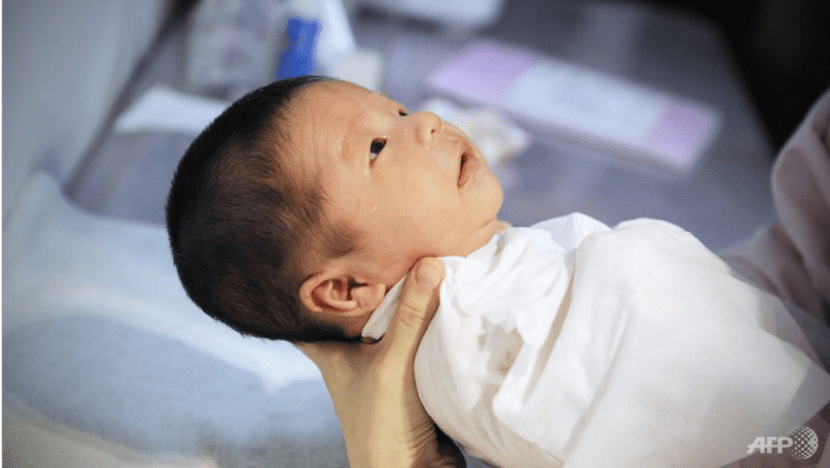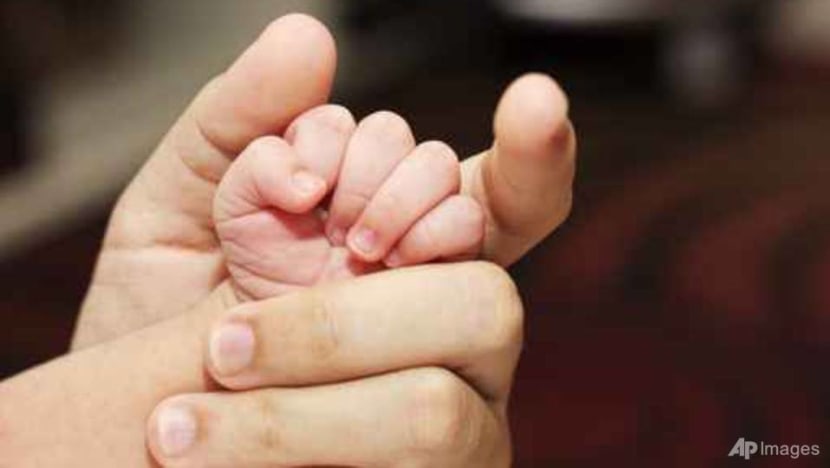Commentary: Honour the honest presentation of motherhood
From confinement to returning to work, it doesn't become easier for a new mother, says KK Women's and Children's Hospital's Dr Helen Chen.

Motherhood is an empowering and uplifting life experience for most women. (Photo: AP images)
SINGAPORE: A studio shot of a baby comes up. The picture mimics the style of many Anne Geddes pictures, portraying an angelic babe in a soft dreamy background. Happy new parents, airbrushed to perfection, surround their beautiful newborn in a loving family embrace.
These are typical images that abound on social media sites visited by many including new mothers. We greet them with likes and express joyful congratulations, while new mums ostensibly celebrate their completing confinement restrictions and look forward to getting out and about freely.
But the reality is that the motherhood journey can be tumultuous for some women.
FROM CONFINEMENT TO RETURNING TO WORK
Perhaps confinement creates an artificial screen, for a new mum is often told to rest, recuperate and let the nanny or the grandmother take care of the baby. With good intentions, her family thinks this will allow her to transition better.
But just when this period ends, the baby becomes more wakeful - usually when he or she turns four weeks old. This gradual alertness to the myriad stimulation from the environment often makes the baby unsettled, requiring soothing. To a vulnerable mother who is relatively inexperienced and anxious that she cannot settle her baby, a painful cycle that increasingly distresses her may begin.

The family may speculate it is the baby that is difficult to manage and perhaps they reassure the new mum that it will all be fine when she returns to work. She hopes it will be – part of her wants to return to work, believing it will make her feel herself again.
When she returns to work, it doesn’t become easier, as she now has to juggle work demands and face challenges in coping with her new life. This adds to her stress as she struggles to function efficiently at work.
At that point, even a friend or family member who is subtly critical of her baby for not being chubby enough, which makes her feel conscious about the quality of her breast milk, may result in her becoming depressed. Worse, all these come at a time when she should, in her logic, be reaping the joys of being a new mother with a picture-perfect babe.
THE SHIFT TO DEPRESSION
Contrary to common belief, a mother with postnatal depression rarely kills herself. Almost all mothers with postnatal depression will share that the thought of caring for their babies keeps them going. And if negative thoughts can be shared and spoken of, the mother finds solace and comfort from her loved ones.
It’s when her inner conflict and dark thoughts cannot be acknowledged or expressed that the mother’s inner state shifts and destabilises. We see this happening in some mothers when their inner psychological distress is so great that their sense of reality breaks and disturbances in perception occur.
An affected mother may project an unconscious wish for her baby to be taken away from her because she is struggling so much.
Another mother recently diagnosed with cancer may believe her disease is incurable and since no one would love her crying baby after she goes, perhaps she should take her baby with her.

Other severely depressed mothers may have dissociative episodes, where their inner distress is so severe that their senses are numbed and they enter a state of altered consciousness as if trying to fend off the emotional storm raging beneath.
In extreme cases, there are a few mothers who see no hope for their lives and feel that all is dark and morbid, while those in a dissociative state lose consciousness of reality. These are the few who are at risk of suicide.
Sometimes this shift happens quickly, within the first few weeks after birth, if there is extraordinary stress or inner conflict. There are some who are especially vulnerable – we have seen one mother who had past mental health issues. Others had a family history of mental illness.
WHAT LOVED ONES CAN DO
Some signs to look out for include low mood, easy tearfulness and irritability. Symptoms also include loss of interest, social withdrawal, poor sleep or appetite, excessive self-blame or feelings of hopelessness.
Getting the mum to medical attention is important, for these conditions are treatable.
Perhaps just speaking with her obstetrician or family doctor (whether her GP or polyclinic doctor) would be a non-threatening first step. Even for mothers who are determined to breastfeed, there is medication that can be safely used for nursing, just as there is medication that can be used during pregnancy.
Although counselling alone will not be sufficient for mothers with severe postnatal depression, families can seek help from family service centre counsellors who may be able to persuade a reluctant mum to seek medical attention.
In the aftermath of a tragic suicide of a 40-year-old mother with her eight-month-old baby in October 2012, there were misconceptions in online forums, with comments posted about how cruel the mother was to kill her innocent child. But her state of mind must have been in such torment that she could not appraise her situation in any other way than to end it with suicide.
As a community, we need to face the issues of maternal mental wellness with courage, to talk openly about these issues and not judge affected mothers who are unable to cope.
Instead, being empathic and supportive can be very comforting for mothers who are distressed and struggling, which may in turn encourage them to ask for help.
And so, we must honour the honest presentation of motherhood. Let’s talk about postnatal depression openly and care for mothers.
For indeed, motherhood is an empowering and uplifting life experience for most women and all women deserve a good chance at transitioning successfully to their roles, as they care for and nurture their children to be strong and resilient.
Dr Helen Chen is head and senior consultant at the KK Women’s and Children’s Hospital’s Department of Psychological Medicine.














